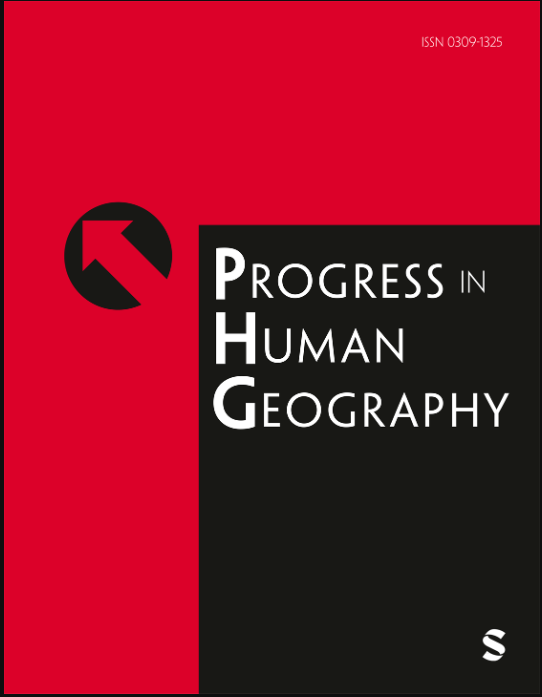班加罗尔企业家嵌入的“VIP都市主义”政治:精英实践与代理问题
IF 6.1
1区 社会学
Q1 GEOGRAPHY
引用次数: 0
摘要
印度的城市已经成为高度竞争的“地理和制度”重构空间,并再现了城市新自由主义政策实验,如地方营销、公私合作伙伴关系和地方支持项目,产生了新形式的“城市创业主义”(Smitha, 2017a;Sudhira, 2017)。事实上,在国家背景下引入的各种新自由主义改革被转化为企业规划和政策引发的驱逐,流离失所和重新安置,通过各种重建项目,如地铁铁路项目,立交桥和当地的道路。城市政策一方面是嵌入在经济精英和利益的动态融合中,另一方面是重新配置地方政治。在这种情况下,与不同的参与者、联盟和组织一起重新调整的制度实践和监管制度,形成了相互竞争的霸权愿景和发展模式(Harvey, 1989;Jessop, 2002;布伦纳和西奥多,2022a)。班加罗尔市政府正越来越多地与企业梯队、房地产和土地开发商、非政府组织和私人投资者等城市精英建立联系,以开发日常互动和实践的公共空间,这些公共空间经过精心规划,以提升城市形象。这些由企业、公私合营企业和地方政府组成的精英联盟一直在运用他们的集体力量,为各种大型地方发展项目的改革进行游说。这些精英的做法最终导致了凌驾、操纵和破坏市政府和规划工具。因此,新形式的两极分化加剧了不同空间尺度上的不平等,在城市中继续扩散。本研究以班加罗尔为例,展示了这些非政治实体如何影响城市治理。显然,向“创业型城市主义”的过渡意味着一种“少政府”、“多企业”的情景,倡导城市必须“以更商业化的方式运行”。该研究在批判性地评估城市治理的同时,关注了“代理”角色的空间维度。本文章由计算机程序翻译,如有差异,请以英文原文为准。
The politics of entrepreneurial embedded ‘VIP urbanism’ in Bengaluru: Elite practices and agency problem
The cities in India have emerged as highly contested space of ‘geographical and institutional’ reconfiguration and reproducing urban neoliberal policy experiments such as place-marketing, public–private partnership, and local boosterism projects producing new forms of ‘urban entrepreneurialism’ (Smitha, 2017a; Sudhira, 2017). In fact, a variety of neoliberal reforms were introduced in the national context are translated into entrepreneurial planning and policy-induced evictions, displacement and resettlement articulated through various redevelopment projects such as metro rail projects, flyovers and roads in the local context. The urban policies are embedded in the dynamic confluence of economic elites and interest at one hand and reconfiguring local politics on the other. Under these circumstances, realigned institutional practices and regulatory regimes with diverse actors, alliances and organisations are forged with competing hegemonic visions and developmental models (Harvey, 1989; Jessop, 2002; Brenner and Theodore, 2022a). The city government in Bengaluru is increasingly networking with urban elites such as corporate echelons, real estate and land developers, non-governmental organisations and private investors to develop public spaces of daily interactions and practices which are carefully planned to bolster urban image. Such elite coalitions of corporate, public–private and local government have been wielding their collective power and lobbied for changes in various mega- local developmental projects. These elite practices eventually have led to overriding, manipulating and destabilising municipal government and planning instruments. As a result, new forms of polarisation intensifying inequalities at different spatial scales continue to proliferate in the city. Illustrating the case of Bengaluru, the study demonstrates how these non-political entities influence the municipal governance. Clearly, a transition towards ‘entrepreneurial urbanism’ signifying a scenario of ‘less government’ and ‘more corporate’ advocating that cities must be ‘run in a more business-like manner’. The study draws an attention to the spatial dimension of the role of ‘agency’ while critically assessing urban governance.
求助全文
通过发布文献求助,成功后即可免费获取论文全文。
去求助
来源期刊

Progress in Human Geography
GEOGRAPHY-
CiteScore
16.40
自引率
7.00%
发文量
56
期刊介绍:
Progress in Human Geography is the peer-review journal of choice for those wanting to know about the state of the art in all areas of research in the field of human geography - philosophical, theoretical, thematic, methodological or empirical. Concerned primarily with critical reviews of current research, PiHG enables a space for debate about questions, concepts and findings of formative influence in human geography.
 求助内容:
求助内容: 应助结果提醒方式:
应助结果提醒方式:


